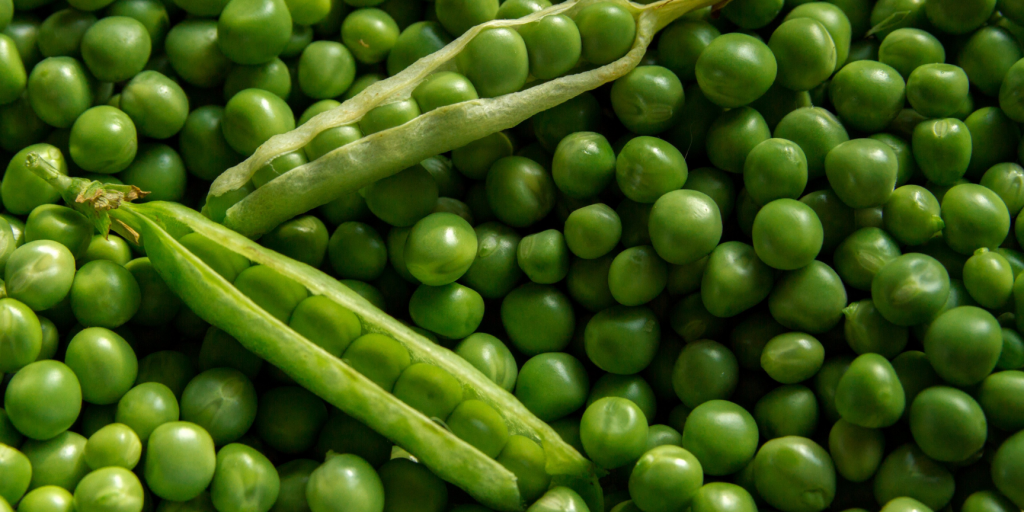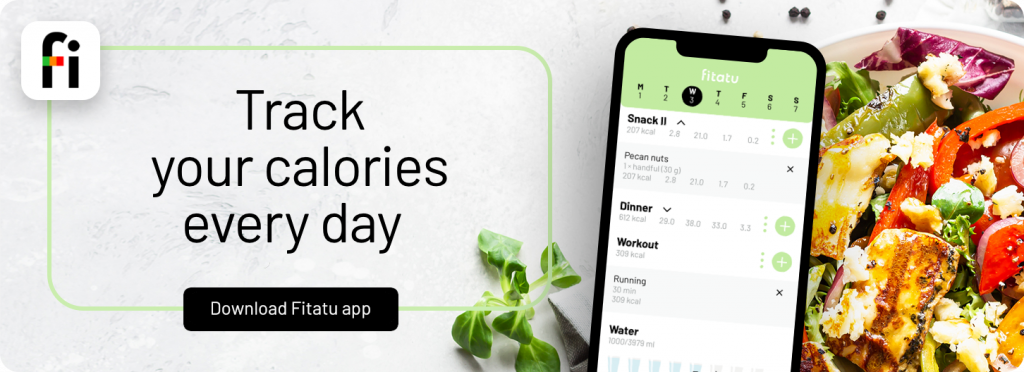Discover the protein power of peas: How much protein in peas?

Peas are often overlooked in the realm of protein-rich foods, but they pack quite a nutritional punch. How much protein in peas, you might wonder? Well, these small, green powerhouses offer a surprising amount of protein, making them an excellent addition to any diet. In this guide, we will delve into the protein content of peas, explore their health benefits, and provide practical tips on how to incorporate them into your meals. Discover the protein power of peas and why they deserve a place in your kitchen.
Introduction to pea protein
Why pea protein matters
Pea protein matters because it offers a high-quality, plant-based protein source that is versatile and sustainable. Unlike animal proteins, pea protein is free from cholesterol and saturated fats, making it a heart-healthy option. Additionally, peas contain all nine essential amino acids, though not always in optimal ratios, they can complement other protein sources effectively. For those with dietary restrictions, pea protein is naturally gluten-free and hypoallergenic, making it suitable for people with coeliac disease or food sensitivities. Furthermore, peas have a lower environmental impact compared to animal farming, aligning with eco-friendly and sustainable eating practices. Therefore, incorporating pea protein into your diet can support both personal health and environmental sustainability.
Origins of pea protein
Pea protein originates from yellow and green split peas, which have been a dietary staple for centuries due to their nutritional value and versatility. Historically, peas have been cultivated in various regions across the globe, including parts of Asia, Europe, and the Mediterranean. The process of extracting protein from peas involves drying and grinding the peas into a fine powder, followed by isolating the protein through a process of solubilisation and precipitation. This process preserves the essential nutrients while removing most of the starch and fibre, resulting in a concentrated protein product. As consumer interest in plant-based diets has surged, pea protein has gained popularity not only as a dietary supplement but also as a key ingredient in various food products. Its rich protein content and hypoallergenic properties make it an excellent alternative to soy and other plant-based proteins.
Nutritional breakdown
How much protein in peas?
When it comes to understanding how much protein in peas, it’s essential to consider portion sizes and forms. A standard 100-gram serving of green peas contains approximately 5 grams of protein. This amount may seem modest, but when incorporated into a balanced diet, peas can significantly contribute to your daily protein intake. For comparison, dried split peas offer an even higher protein content, boasting around 25 grams of protein per 100 grams. This makes split peas an excellent choice for soups, stews, and casseroles. Additionally, pea protein powder—a concentrated form derived from yellow split peas—provides an impressive 15-20 grams of protein per serving, depending on the brand. This versatility allows you to choose the best form of peas to meet your dietary needs and preferences. Whether consumed fresh, dried, or as a supplement, peas can be a valuable protein source in both vegetarian and omnivorous diets.
Other key nutrients in peas
Beyond their protein content, peas are packed with a variety of essential nutrients that contribute to overall health. They are rich in dietary fibre, which aids digestion and helps maintain a healthy gut. A 100-gram serving of peas provides about 5 grams of fibre, making them an excellent choice for promoting regular bowel movements and preventing constipation. Peas are also a good source of vitamins, particularly vitamin C and vitamin K. Vitamin C acts as an antioxidant, supporting immune function and skin health, while vitamin K is crucial for blood clotting and bone health. Additionally, peas contain significant amounts of B vitamins, including folate, which is essential for DNA synthesis and cell division. Minerals such as iron, magnesium, and phosphorus are also present in peas, contributing to various bodily functions, from oxygen transport to bone maintenance. Overall, peas are a nutrient-dense food that can enhance your diet in multiple ways.
Comparing Pea Protein to Other Sources
When comparing pea protein to other protein sources, it holds its own quite well. Unlike animal-based proteins such as chicken, beef, and fish, pea protein is entirely plant-based, making it suitable for vegetarians and vegans. In terms of protein content, pea protein is comparable to other legumes like lentils and chickpeas, but it has the advantage of being hypoallergenic, unlike soy or dairy-based proteins, which can cause allergies in some individuals. Additionally, pea protein is easier to digest for many people compared to other plant proteins like wheat gluten. While it may not contain all essential amino acids in ideal ratios, combining pea protein with other plant-based proteins, such as rice or quinoa, can provide a complete amino acid profile. Overall, pea protein offers a versatile, digestible, and allergen-friendly alternative to both animal and other plant-based proteins, making it a valuable addition to a balanced diet.
Health benefits of pea protein
Muscle growth and repair
Pea protein is an excellent choice for muscle growth and repair, thanks to its rich amino acid profile. It contains a substantial amount of branched-chain amino acids (BCAAs), including leucine, isoleucine, and valine, which are crucial for muscle protein synthesis. Leucine, in particular, plays a pivotal role in stimulating muscle growth and recovery after exercise. Studies have shown that pea protein can be as effective as whey protein in promoting muscle thickness and strength gains. This makes it an ideal supplement for athletes, bodybuilders, or anyone looking to enhance their muscle mass. Additionally, pea protein is easily digestible, ensuring that your body efficiently absorbs and utilises the protein for muscle repair and growth. Whether you are engaging in intense workouts or simply aiming to maintain muscle health, incorporating pea protein into your diet can support your fitness and recovery goals.
Heart health and pea protein
Pea protein can contribute significantly to heart health due to its beneficial nutrient profile. It is free from cholesterol and low in saturated fats, which are known to contribute to heart disease when consumed in excess. Additionally, pea protein contains high levels of arginine, an amino acid that plays a crucial role in maintaining healthy blood pressure by promoting the dilation of blood vessels. This can lead to improved blood flow and reduced strain on the heart. Pea protein is also rich in fibre, which has been shown to lower cholesterol levels by binding to cholesterol particles and aiding in their removal from the body. Furthermore, studies suggest that plant-based proteins, like pea protein, can help reduce the risk of cardiovascular diseases when they replace animal proteins in the diet. Incorporating pea protein into your meals can support heart health while providing the necessary nutrients for overall well-being.
Incorporating pea protein into your diet
Easy recipes with pea protein
Incorporating pea protein into your diet can be simple and delicious with the right recipes. One easy way to add pea protein is by blending it into smoothies. Combine a scoop of pea protein powder with your favourite fruits, a handful of spinach, and almond milk for a nutrient-packed drink. For a savoury option, try making a hearty pea protein soup. Start with sautéing onions and garlic, add in vegetable broth, split peas, and chopped vegetables, then simmer until tender. For a quick snack, consider pea protein energy balls. Mix pea protein powder with oats, nut butter, honey, and dark chocolate chips, then roll into bite-sized balls. These are perfect for a post-workout boost. Lastly, you can enhance your baking by adding pea protein powder to muffin or pancake batter, providing an extra protein kick to your breakfast or snack.
Pea protein supplements
Pea protein supplements are a convenient way to increase your protein intake, especially for those with busy lifestyles or dietary restrictions. Available in powder form, they can easily be mixed with water, milk, or your favourite beverage for a quick protein boost. Many brands offer flavoured options such as vanilla, chocolate, and berry, making them enjoyable to consume. Pea protein supplements can also be added to recipes like oatmeal, yoghurt, and baked goods to enhance their nutritional profile. For athletes and fitness enthusiasts, pea protein powders can serve as an excellent post-workout shake to aid in muscle recovery and growth. When choosing a pea protein supplement, look for products with minimal additives and artificial ingredients to ensure you’re getting the highest quality protein. Overall, pea protein supplements provide a versatile and efficient way to meet your protein needs, whether you’re at home or on the go.
Tips for maximum protein intake
To maximise your protein intake from peas and pea protein products, consider incorporating them into various meals and snacks throughout the day. Start your morning with a protein-rich smoothie by blending pea protein powder with fruits and vegetables. For lunch, add peas to salads, soups, or grain bowls for an extra protein boost. Snacking on roasted peas or pea protein energy balls can help keep your protein levels steady between meals. At dinner, include peas in stir-fries, casseroles, or pasta dishes. Combining pea protein with other plant-based proteins, such as beans, lentils, and quinoa, can create a complete amino acid profile, enhancing the overall nutritional value. Additionally, be mindful of portion sizes to ensure you’re getting an adequate amount of protein without overloading on calories. By diversifying your sources and creatively incorporating peas into your diet, you can easily meet your daily protein requirements.
Conclusion
Recap of protein benefits
To summarise, peas are a powerhouse of protein and offer numerous health benefits. They provide a plant-based protein source that is low in saturated fat and cholesterol-free, making them heart-healthy. Pea protein supports muscle growth and repair due to its rich amino acid profile, including essential branched-chain amino acids. Additionally, peas are packed with other vital nutrients such as fibre, vitamins, and minerals, which contribute to overall well-being. They are hypoallergenic and suitable for those with dietary restrictions, offering a versatile alternative to other protein sources. Pea protein can be easily incorporated into a variety of meals and snacks, from smoothies and soups to energy balls and baked goods. Whether consumed fresh, dried, or as a supplement, peas can play a significant role in a balanced diet, supporting both personal health and environmental sustainability. Embrace the protein power of peas and enjoy their myriad benefits.
Final thoughts on pea protein
In conclusion, pea protein stands out as a versatile and nutritious addition to any diet. Its high protein content, coupled with a rich array of essential nutrients, makes it a valuable food source for those looking to enhance their overall health. Pea protein is not only beneficial for muscle growth and repair but also supports heart health and digestive function due to its fibre content. Its hypoallergenic nature ensures it is suitable for individuals with food sensitivities or allergies. Moreover, with its low environmental impact, pea protein aligns well with sustainable and eco-friendly dietary practices. Whether you are vegetarian, vegan, or simply looking to diversify your protein sources, incorporating pea protein into your meals is a practical and tasty way to meet your nutritional needs. Embrace the benefits of pea protein and make it a staple in your kitchen for a healthier lifestyle.
Fitatu Support Group
Join our Facebook community! Discover inspiring recipes daily, receive support from other healthy eating enthusiasts, and benefit from professional dietitian advice from Fitatu. Get inspired and take care of your health in the best company!

Fitatu® app
Download the app from the Google Play Store or Apple Store and start tracking your macros with us!
Prefer the web version? No problem. A basic web version is available for our subscribers.
What else is included in Fitatu® Premium?
- over 2000 recipes, plus dozens of new ones every month,
- additional intermittent fasting plans,
- the ability to create shopping lists,
- 7 ready-made meal plans,
- filtering products and recipes,
- more sync options with fitness apps,
- access to the web version of the app,
- no ads!









